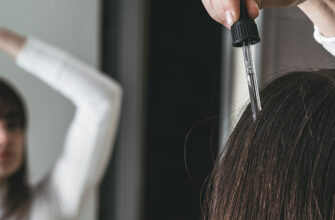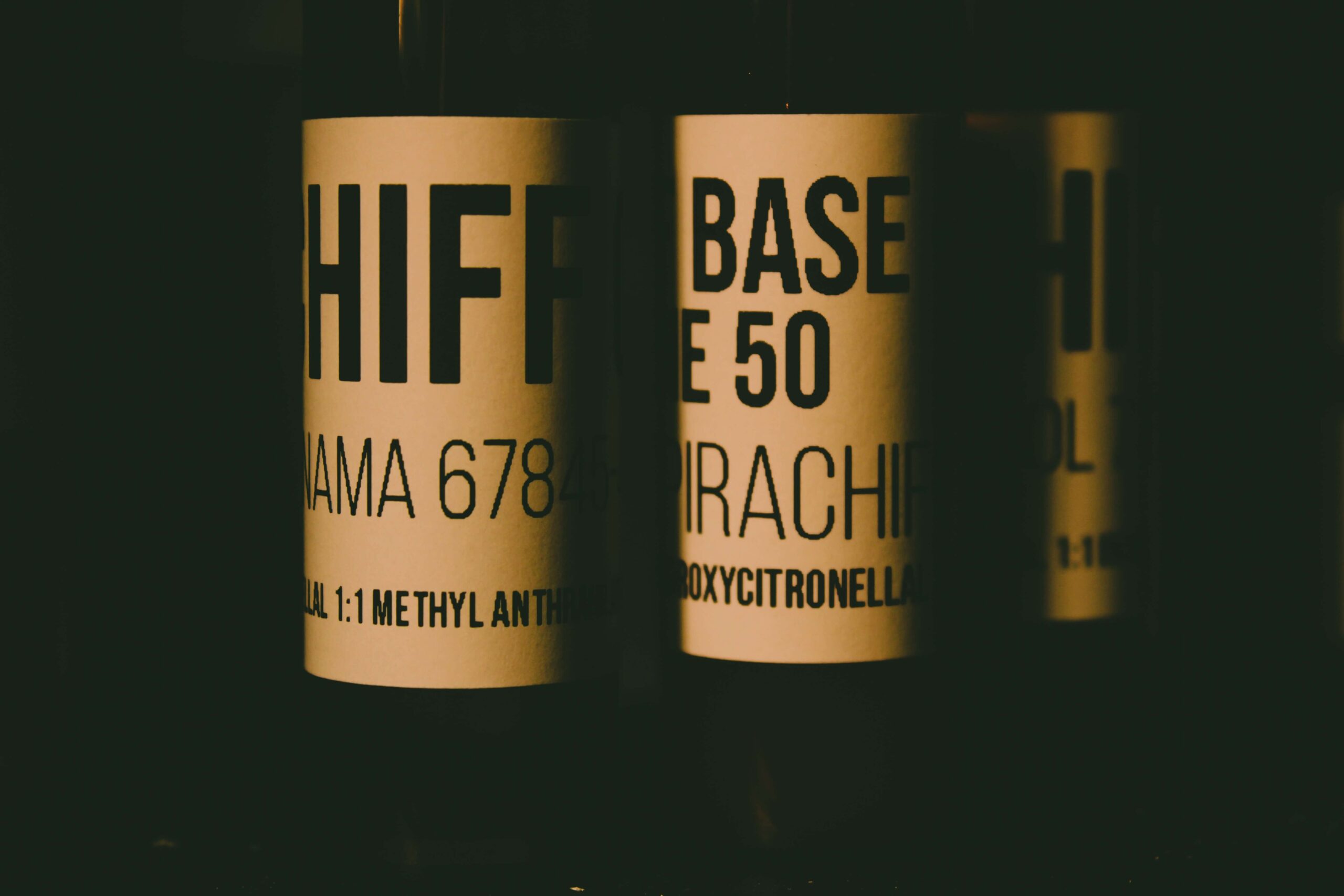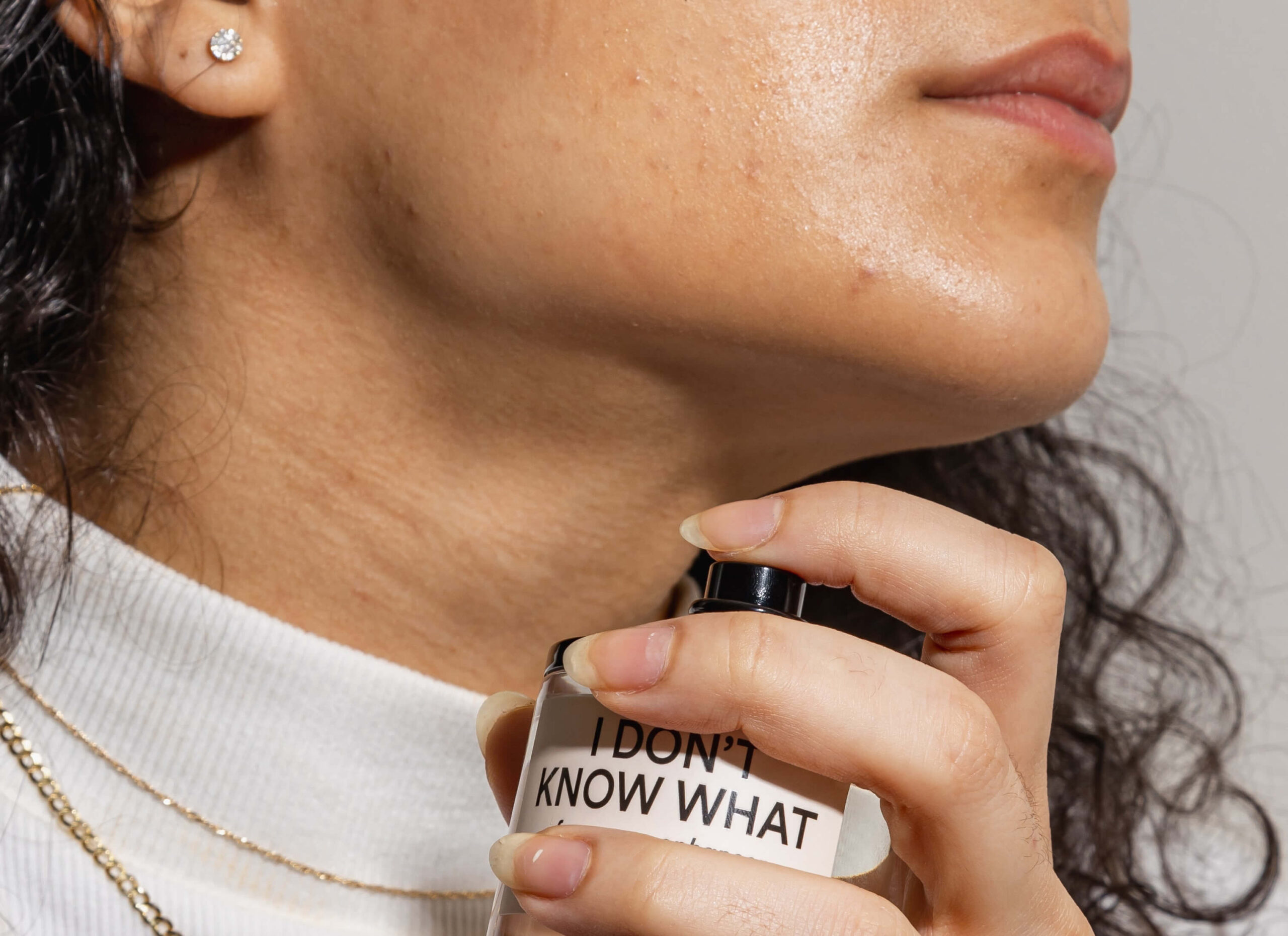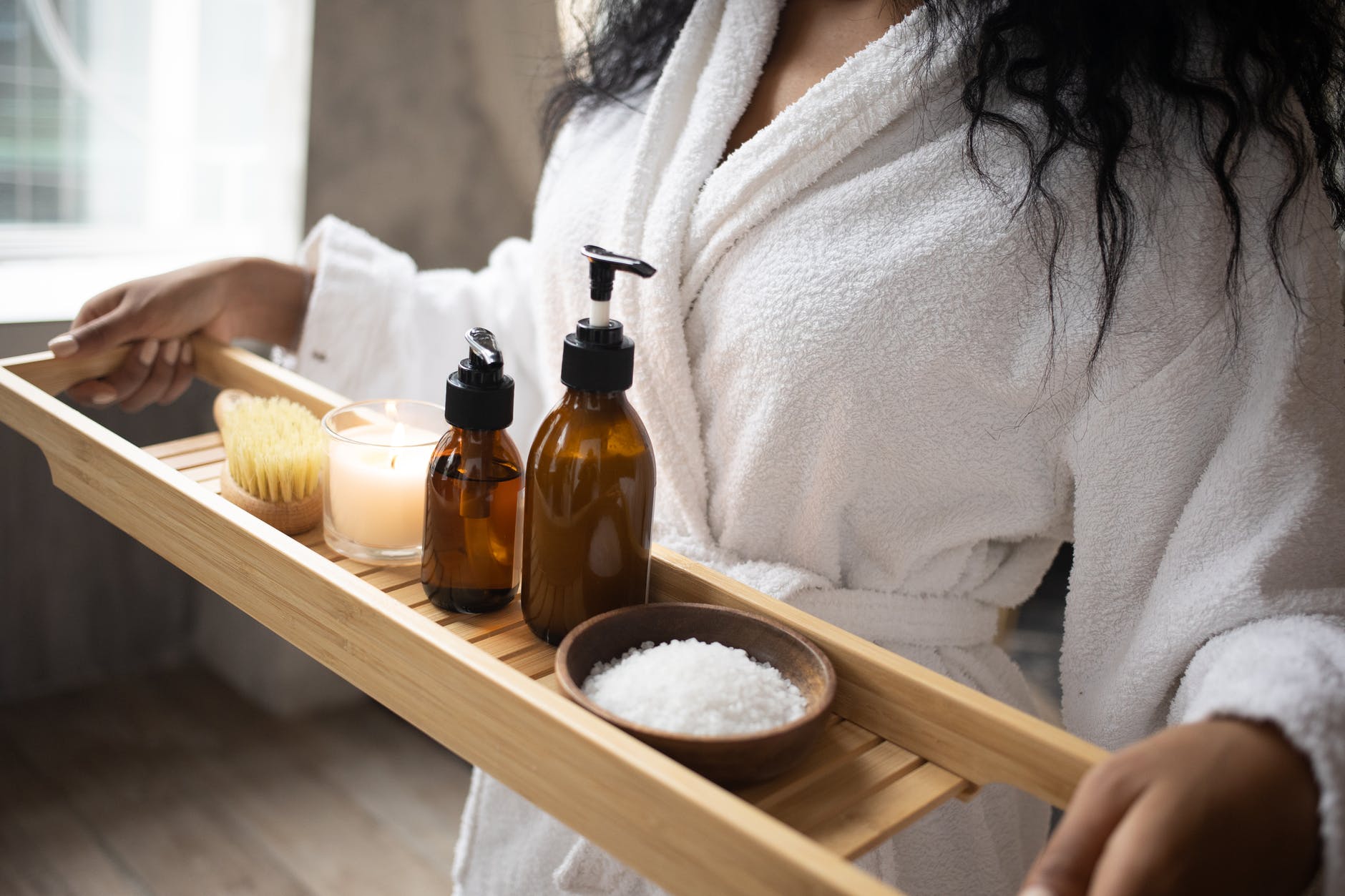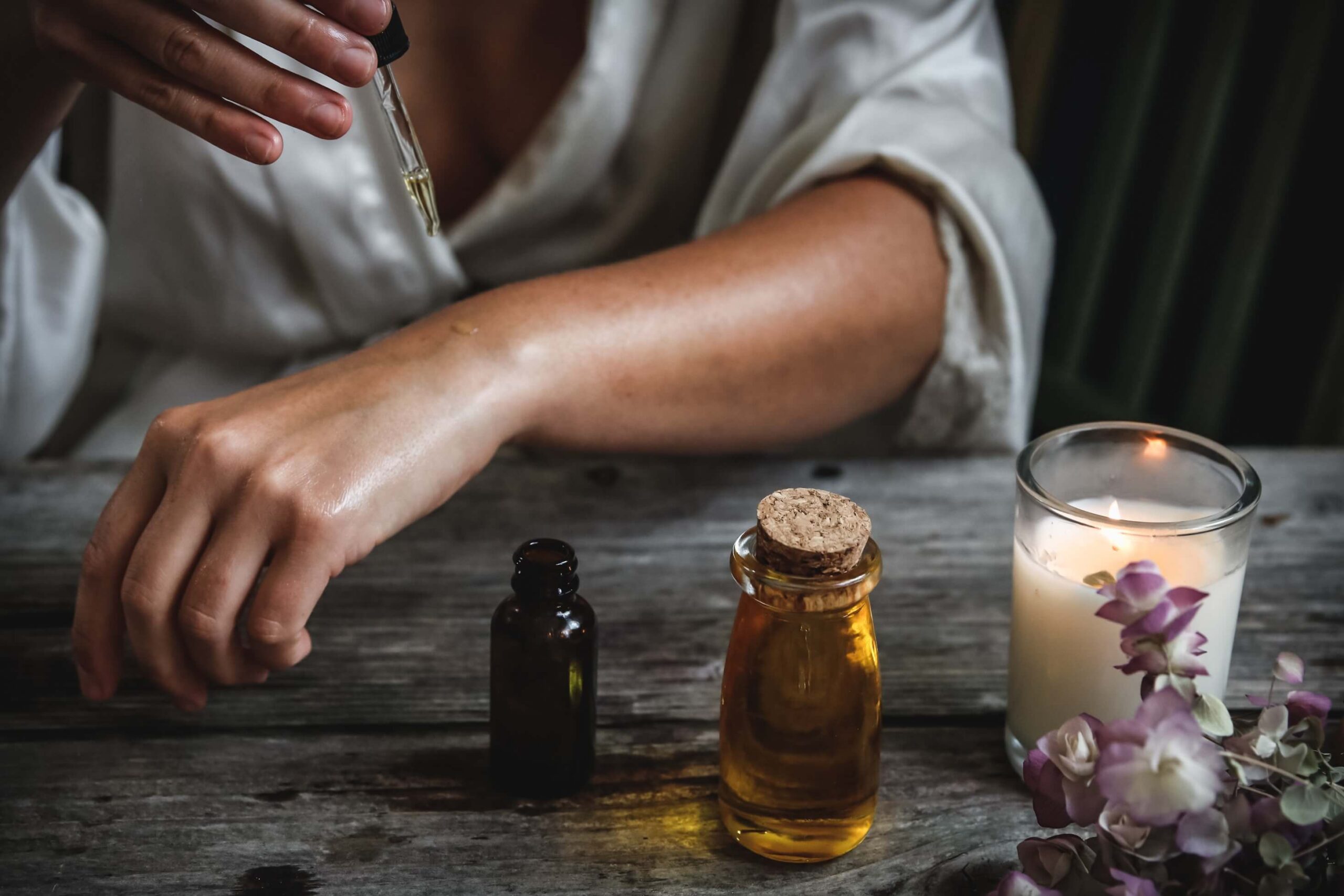Alternative therapies, such as aromatherapy (a representative alternative), are now used in healing-related practices, such as in massage centers, yoga studios and spas, and even in hospice facilities and chiropractic clinics.
- What exactly is aromatherapy?
- What is aromatherapy used for?
- How essential oils work?
- How many different ways can Aromatherapy be performed?
- What types of plants produce these essential oils?
- What conditions can benefit from aromatherapy?
- 9 Recognized advantages of aromatherapy
- Promotes relaxation
- Improve the quality of your sleep
- Regulates breathing problems
- Improve Skin Health
- Helps control cancer symptoms and side effects
- Relieving pain and inflammation
- Relieve fatigue
- Improving Sexual Desire
- Improve digestion
- Considerations for aromatherapy
What exactly is aromatherapy?
The essential oils used in aromatherapy are derived from dozens of different medicinal plants found around the world, using different parts of the plant, such as flowers, herbs, roots and wood, and have been shown to have a powerful effect on improving physical, emotional and spiritual health.
For more than 5,000 years, aromatherapy has been a trusted approach among different cultures around the globe. Naturopaths turn to aromatherapy because of the many effects of essential oils like antibacterial, anti-inflammatory, and analgesic.
What is aromatherapy used for?
According to research on PDQ, some of the most common reasons people use it include: managing pain, improving sleep quality, reducing stress, overcoming depressive symptoms, relieving joint pain, and even fighting the effects of cancer.
Today, you may find over 40 different physical therapy grade essential oils in health food stores or online (far more than that, of course). You may know some popular essential oils, including tea tree oil, lavender oil, and peppermint essential oil, which can be used in everything from toothpaste to laundry detergent.
How essential oils work?
Plants contain certain beneficial chemicals as a means of protection, including protection against insects or rodents, and protection against bacteria or viruses.
The active ingredients in essential oils are extracted directly from high yields of medicinal plants or herbs that have been distilled. The end result is a very concentrated, oily liquid that can be mixed with other substances.
Because essential oils are so potent, when used in aromatherapy they are usually mixed with a carrier oil and applied to the skin. Common carrier oils include almond oil, jojoba oil or coconut oil.
How many different ways can Aromatherapy be performed?
- Diffusing one or more blends of essential oils into the air by means of incense.
- sniffing and inhaling by bringing the nose directly to the mouth of the bottle, or by placing drops on a cotton cloth.
- Massage therapy.
- Soaking in a bath with drops.
- Applying to the skin.
Porch shows that most people prefer to use aromatherapy candles at home, apply natural skincare products containing essential oils to their skin, or add them to their bathwater.
What types of plants produce these essential oils?
Herbs such as.
- Rosemary, thyme, oregano, or mint.
- leafy ones such as eucalyptus.
- Grasses such as lemongrass.
- spices such as fennel.
- citrus ones such as sweet orange, grapefruit, or lemon.
- Flowers e.g.: roses, geraniums.
- trees or bark-like e.g.: cedar or needle pine.
- plant roots e.g.: ginger.
- Resinous ones such as frankincense.
And many more.
What conditions can benefit from aromatherapy?
Aromatherapy has been studied to be associated with improvements in short-term health problems as well as more serious illnesses. Research has shown that anyone suffering from the following health conditions may benefit from aromatherapy.
- Chronic stress or anxiety
- Depression
- Insomnia and sleep difficulties
- Muscle pain
- Joint pain
- Respiratory tract infections
- Digestive problems
- Premenstrual syndrome or menopause
- Skin problems or disorders, including bites, rashes, bruises, cellulite, or acne
- Blood sugar fluctuations
- Cancer (adjuvant)
- Fatigue
A growing number of studies, in humans or animals, have shown that essential oils have both sedative and stimulant effects, as well as positive effects on the immune system and central nervous system.
More recently, studies using functional imaging scans have shown that essential oils have a positive effect on a primitive area of the brain known as the limbic system, which helps control emotional responses and behavior.
The key to the effectiveness of aromatherapy is the use of pure, physiotherapeutic grade essential oils, not those with synthetic ingredients or fragrances added. The effectiveness of aromatherapy always depends on the quality and proper dosage of the essential oils used.
9 Recognized advantages of aromatherapy
Promotes relaxation
Many studies have shown that the essential oils used in aromatherapy, including lavender and chamomile, can help people who feel stressed or anxious to relax. The scent of lavender is believed to have a general calming effect by reducing the activity of the sympathetic nervous system, which is responsible for the "fight-or-flight" response (a psychological term) and the occurrence of physical symptoms such as sweaty palms or rapid heartbeat. .
In a study published in the Journal of Advanced Nursing, patients who received aromatherapy reported significant improvements in their mood and anxiety, feeling less anxious and more positive immediately after receiving aromatherapy.
If you are new to aromatherapy, an easy way to get started is to add a few drops of anxiety-relieving essential oils to warm water. For example, adding 5 to 7 drops of lavender to a bath (or sometimes with bath salts) is a common way to help manage daily stress.
Improve the quality of your sleep
Because many aromatic essential oils help people relax and reduce stress, they can make you feel sleepy before you go to bed. Those who suffer from insomnia, anxiety, or even restless leg syndrome and hot flashes at night can benefit from sleep-inducing essential oils, including lavender, chamomile, rose, vetiver, and ylang ylang.
An hour or so before bedtime, try diffusing essential oils in your bedroom with an aromatherapy candle, diffuser, incense burner or diffuser. Essential oils diffuse by releasing very tiny particles into the air that can be inhaled directly through the nasal passages and then enter the brain and are able to cross the blood-brain barrier.
Adding 5 to 10 drops to an aromatherapy diffuser at home or in the office can help create a calming environment and also make the room smell nice.
Regulates breathing problems
Certain essential oils have antiseptic properties that can help remove airborne bacteria, fungi and mold that can cause respiratory problems such as nasal congestion, coughing or sneezing.
Studies have shown that the use of citrus essential oils in aromatherapy can help improve overall immune function and reduce fatigue associated with depressive states. Studies have found that wild orange essential oil and lemon essential oil (with a citrus scent), can restore stress-induced immune suppression and help restore balance in the body. Essential oils for depression and citrus oils can help improve mental health by stimulating the "olfactory system" that controls the body's sense of smell.
When citrus essential oils were given to 12 depressed patients, their neuroendocrine hormone levels returned to normal and their immune function improved, which was comparable to the effects of antidepressants.
In addition to diffusing essential oils at home, you can also inhale the scent of essential oils directly from the bottle, or apply some directly to your chest or neck. Some great essential oils that can help with allergies and sore throats and other breathing problems such as sinusitis, allergies, colds, flu, coughs, and fatigue include eucalyptus, peppermint, frankincense, rosemary, myrrh, lemon, oregano, and tea tree.
Improve Skin Health
Diluted essential oils can be sprayed on the skin or scalp to reduce acne, dandruff, cellulite, toe fungus, itching, inflammation from bites, rashes or to promote wound healing. Tea tree essential oil (Melaleuca alternifolia) is one of the most popular essential oils for treating skin problems because of its antibacterial, antiseptic, antifungal and other cleansing qualities.
Other essential oils used for the skin (including those for acne) are lavender, happy sage, juniper berry, lemon, wild orange, perpetual flower, and frankincense. To make your own essential oil spray, which you can spray onto problem areas of your skin, add 10 to 20 drops of essential oil to a spray bottle containing 4 ounces (30 ml) of water. (Fragrance-free toners are recommended for blending skincare essential oils)
Spray a few times on the skin at a time and save the rest for further use. You can also use the same essential oils on your scalp to blend an essential oil shampoo, or in a cleanser to get the benefits.
Helps control cancer symptoms and side effects
Aromatherapy can be used for supportive care for cancer patients during treatment, for stress reduction or pain management, or simply for a general sense of well-being. People battling cancer often try different complementary therapies (including massage therapy, meditation, or acupuncture), which can be paired with the use of essential oils.
How can cancer patients use aromatherapy? Essential oils can relieve symptoms associated with cancer or hospice care, such as nausea, fatigue, pain, depression, or insomnia. Essential oils that can help cope with cancer symptoms or side effects caused by cancer treatment include frankincense, ginger, lavender, geranium, rose, neroli, and happy sage.
Relieving pain and inflammation
To help relieve pain caused by tight muscles, joint pain, tissue damage from inflammation or headaches, different essential oils can be inhaled or applied. Common essential oils used to treat arthritis pain include ginger, myrrh, turmeric and citrus. You can use other essential oils to relieve almost any pain, including those for headaches, such as peppermint, green peppermint, rosemary and frankincense.
Relieve fatigue
One study found that aromatherapy had a positive effect on alertness, testing ability (in this case, testing math problems), and overall mood. 40 adults received a three-minute aromatherapy session using one of two scents, lavender (considered a relaxing scent) and rosemary (considered a stimulating scent), and participants completed math calculations as well as a survey about pre-and post-treatment mood survey.
Those who received lavender aromatherapy showed stronger beta power, which indicated an increase in sleepiness, but also reported a decrease in depressed mood and felt more relaxed. Although participants in the lavender group reported feeling more drowsy, they actually completed mathematical calculations faster and more accurately after aromatherapy. The rosemary group showed a decrease in prefrontal alpha and beta power, indicating increased alertness. They had lower anxiety state scores, reported feeling more relaxed and alert, and completed math problems more quickly.
Improving Sexual Desire
Aromatherapy has a long history of improving libido, boosting energy by increasing blood flow and treating sexual dysfunction. Some of the more popular oils used to improve hormone balance, "feminine power" and sexual health include: happy sage, sandalwood, rosemary, geranium, ylang ylang and neroli.
Improve digestion
Essential oils such as ginger, turmeric, grapefruit, peppermint, lemon, chamomile and eucalyptus can help suppress acid reflux, ulcers, nausea, indigestion, stomach aches caused by pregnancy sickness or PMS.
A study found that Curcuma longa and Zingiber officianale essential oils, which are widely used as traditional medicine and food ingredients in Asian countries, have strong gastroprotective activity, including anti-ulcer potential.
Both provide high levels of antioxidant enzymes, such as glutathione peroxidase, superoxide dismutase, catalase, and glutathione, which have been shown to reduce gastric lining necrosis, gastric perforation, and bleeding, and significantly reduce stomach pain.
Considerations for aromatherapy
Certain types of essential oils are not recommended for use depending on the patient's specific medical history, allergies or sensitivities. Unless otherwise stated, most essential oils should be kept away from infants and children. If you are pregnant or breastfeeding, always make sure that any essential oils you use for aromatherapy are safe and do not pose any risk.
Although essential oils usually exhibit minimal side effects, potential risks include,
- Intake in large quantities/intentional abuse may lead to poisoning
- Skin irritation when used in large quantities
- Allergic or contact dermatitis
- Photosensitivity to sunlight
In general, you should only take essential oils internally if you are sure they are completely pure and you are not taking medication that interacts with them. If you are concerned about the effects of taking them internally on your body, consult a professional and start with a low dose if possible.
If you have sensitive skin and want to apply essential oils topically, be sure to dilute them with a carrier oil before applying them. Watch out for symptoms such as rashes, redness or swelling (especially after sun exposure). Sensitizing essential oils include bergamot, lemon, lime, bitter orange and. Photosensitizing essential oils include Bergamot, Lemon, Lime, Bitter Orange and Euphorbia Root. Citrus oils and essential oils containing menthol (including peppermint essential oil) can irritate sensitive skin, so use these oils with caution and patch test a small area of skin first.
